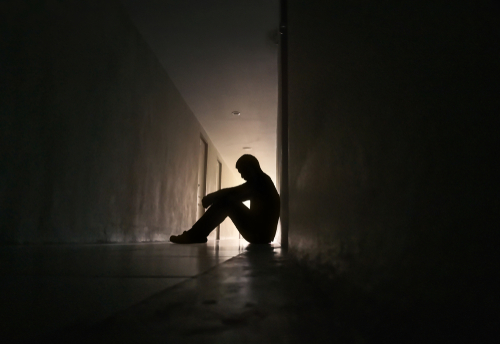Depression is listed in the Diagnostic and Statistical Manual of Mental Disorders, Fifth Edition (DSM-5) as major depressive disorder, and is sometimes referred to as a clinical depression. It is characterized by persistent and intrusive depressive moods, and/ or a loss of interest in previously enjoyed activities resulting in significant impairment in daily life. According to the American Psychiatric Association, “Depression affects an estimated one in 15 adults (6.7%) in any given year. And one in six people (16.6%) will experience depression at some time in their life.” There is currently no laboratory test used to detect or diagnose depression. There are, however, tests (e.g., blood tests) that may be used to check for any other underlying conditions to rule out depression. Certain medications and illnesses (e.g., thyroid disorder, viral infections, etc.) can cause symptoms that mimic those of depression. The diagnosis process for depression is typically comprised of a thorough evaluation where a medical professional will ask in-depth questions about one’s mood, behavior, daily activities, and family health history. An individual may also be requested to complete a depression-rating questionnaire (e.g., the Hamilton Depression Rating Scale, the Zung Self-Rating Depression Scale, etc.) to gauge one’s level of depression. A diagnostician confirms a diagnosis of depression by differentiating it from other psychiatric conditions, such as bipolar disorder, anxiety disorders, and obsessive-compulsive disorder (OCD).
DSM-5 Diagnostic Criteria
To be diagnosed with major depressive disorder, a person’s symptoms must fit the criteria outlined in the DSM-5. An individual must be experiencing five or more of the following symptoms during the same 2-week period and at least one of the symptoms should be either (1) depressed mood or (2) loss of interest or pleasure:
- Depressed mood most of the day, nearly every day.
- Markedly diminished interest or pleasure in all, or almost all, activities most of the day, nearly every day.
- Significant weight loss when not dieting or weight gain or decrease or increase in appetite nearly every day.
- A slowing down of thought and a reduction of physical movement (observable by others, not merely subjective feelings of restlessness or being slowed down).
- Fatigue or loss of energy nearly every day.
- Feelings of worthlessness or excessive or inappropriate guilt nearly every day.
- Diminished ability to think or concentrate, or indecisiveness, nearly every day.
- Recurrent thoughts of death, recurrent suicidal ideation without a specific plan, or a suicide attempt or a specific plan for committing suicide.
These symptoms must cause the individual clinically significant distress or impairment in social, occupational, or other important areas of functioning. The symptoms must also not be a result of substance abuse or another medical condition.
The information above is provided for the use of informational purposes only. The above content is not to be substituted for professional advice, diagnosis, or treatment, as in no way is it intended as an attempt to practice medicine, give specific medical advice, including, without limitation, advice concerning the topic of mental health. As such, please do not use any material provided above to disregard professional advice or delay seeking treatment.




